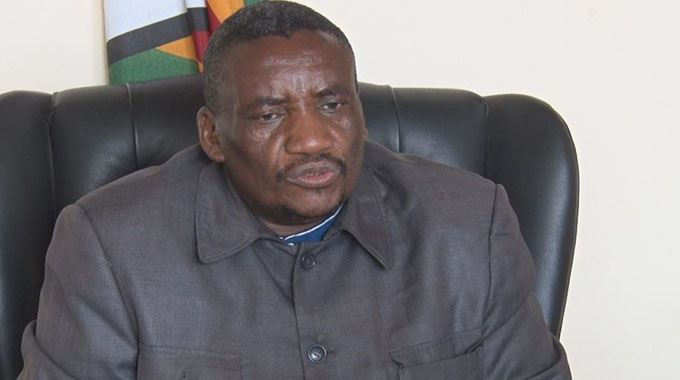Phased border reopening proposed

Thupeyo Muleya
Beitbridge Bureau
The Department of Immigration has advised the Government on health grounds to consider phasing the reopening of land borders for passenger traffic, especially at Beitbridge Border Post where 500 000 people crossed in both directions before the start of the lockdown in March alone.
Already, South Africa and Zimbabwe have similar regulations in place on testing requirements to avoid quarantining on the other side, although the regulations are yet to be perfectly aligned.
But the recent introduction of more strict testing requirements for truck drivers has caused traffic jams for 1 000 or so trucks that cross the border every day as officials check the required paperwork.
The port of entry is a gateway from South Africa to much of Sadc, with many using the border post on their way to Zimbabwe, Malawi, Mozambique, DRC, Zambia and Tanzania.
According to assistant regional immigration officer in charge of Beitbridge, Mr Nqobile Ncube, a number of measures still need to be put in place to avoid a resurgence of Covid-19 infections in the country.
Mr Ncube made the remarks while briefing Deputy Minister of Health and Child Care Dr John Mangwiro on the state of affairs at the border.
The Deputy Minister visited the port of entry on Saturday to assess the country’s state of preparedness ahead of the gradual opening of its borders to human traffic. Cargo traffic was not affected by the border closures.
Zimbabwe has 26 ports of entry including both small and major border posts.
Last month, the country reopened airports to tourism-related travel, but passenger traffic by road and rail is still restricted.
Only returning residents, commercial cargo, diplomats on Government business and human remains for burial are being allowed entry through the country’s land borders.
“South Africa recently opened its land borders to international travel and there have been challenges in some instances with regards to logistics and efficient flow of traffic.
As Zimbabwe, we must have an introspection into the South African model and make corrective measures based on their experience. In fact, the movement of people across borders has been limited throughout the lockdown period,” said Mr Ncube.
The senior immigration officer said in the period prior to the lockdown, they were processing over 500 000 people per month with 13 000 to 15 000 per day from Sadc countries north of the Zambezi River. Mr Ncube said the Government should look at the probability of demand for clearing the same number when Beitbridge is re-opened to human traffic and the resources needed to make sure that this movement is safe.
The current situation where commercial trucks are not moving on either side of the border, he said should be a case indicator of what to expect when more people are allowed access through the border.
“As immigration officials, we are of the view that we should have a phased approach to open borders to accommodate the increase in traveler’s movement.
“The other challenge we are having on the ground which has generated interest from the South Africans is on issues around who from our side is responsible or is able to test and certify Covid-19 results for those leaving Zimbabwe. This must be clarified,” said Mr Ncube.
He said though the Zimbabwean authorities were allowing South Africans and the holders of residence permits from that country to exit, and Zimbabweans and holders of residence permits to re-enter, the movement through the official border was minimal.
The official said at the start of the lockdown in March close to 2 500 South Africans could not leave Zimbabwe and they were required to clear their right to live in South Africa with the embassy in Harare first.
He said only 100 people had been authorised to exit before Pretoria reopened its borders on 1 October.
“During the lockdown, we have been clearing 1000 people a day including truckers, special cargo, returning residents, and since we have had a compromise opening with South Africa we have not seen a change in traffic.
“It is either people entered through illegal entry points to avoid quarantining or they can’t afford the testing fees as pronounced by our Government,” said Mr Ncube.








Comments